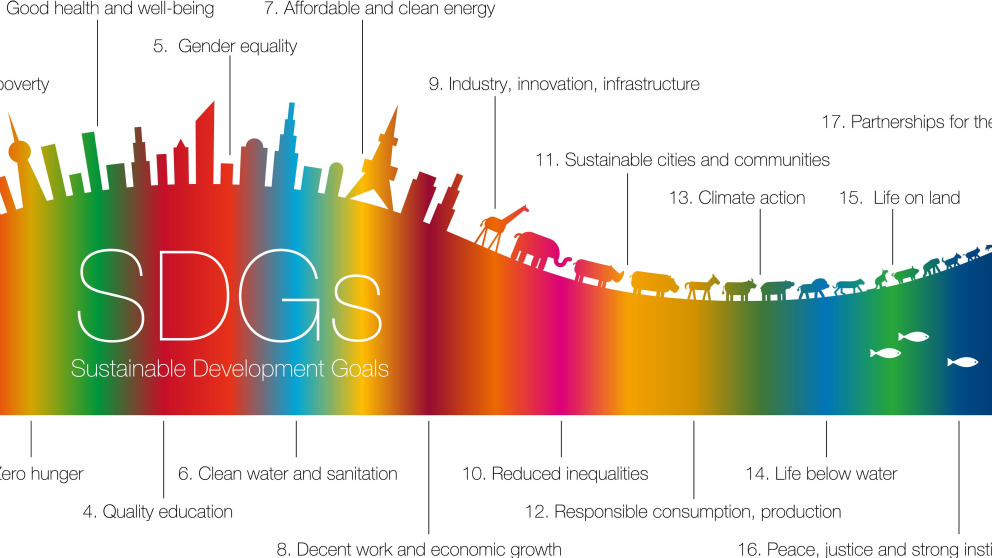SHAPE project concludes at RIFS
28.02.2023

The SHAPE project’s final conference was held on 16 February 2023. More than 120 people attend-ed the day-long virtual conference to learn about and discuss the project's findings. SHAPE stands for "Sustainable development pathways achieving Human well-being while safe-guarding the climate And Planet Earth”. During the course of the project, researchers modelled and analysed Sustainable Development Pathways that would simultaneously achieve the Sustainable Development Goals of the 2030 Agenda and meet the climate targets set out in the Paris Agree-ment.
The final conference was opened by Elmar Kriegler (PIK), Principal Investigator of the SHAPE pro-ject, and a keynote speech by Johan Rockström, Director at the Potsdam Institute for Climate Im-pact Research. This was followed by a panel discussion on the topic "Implementing a pathway to-wards sustainable development". The invited panellists were Richard Alexander Roehrl (UN DESA), Laura Parisi (European Central Bank), Caroline Makasa (SDG Center for Africa), and Prabhat Upadhyaya (formerly WWF South Africa, unaffiliated participant). Among other things, the panellists emphasized decision-makers’ need for quantitative, contextualized analyses of the interactions be-tween sustainable development goals and climate action, as well as the need for trusting and effective dialogue between science and policymakers. Following this, the results of the SHAPE project were presented.
In the afternoon, topic-specific conference sessions were held to present and discuss in more depth the SHAPE project's transdisciplinary approach and its findings on resource use, equitable transformations, and governance mechanisms. As a co-organizer of the SHAPE multi-stakeholder dialogue, RIFS, together with project partner Stockholm Resilience Centre (SRC), hosted the ses-sion on SHAPE's transdisciplinary approach.
Stakeholders who had participated in the dialogue events spoke at this session alongside colleagues from the SHAPE consortium. In the final discussion of the day, participants were especially interested in the organizational aspects of the stakeholder dialogue, such as the selection of stake-holders and our experience with shifting dialogue events online during the pandemic. The role of transdisciplinary projects in terms of "community building" across disciplines was also discussed. The conference session was attended by about 60 people online. The programme of the final conference is available here.
The SHAPE project
The SHAPE research consortium investigated interactions between options to mitigate climate change and the broader agenda of the United Nations' Sustainable Development Goals, and mod-elled development pathways that would simultaneously achieve the Sustainable Development Goals in 2030, maintain sustainable development thereafter, and meet the climate targets set out in the Paris Agreement. To achieve this, researchers and stakeholders co-created new and comprehensive narratives (storylines) of transformations towards sustainable development and climate action, which were subsequently translated into quantitative scenarios. These scenarios were examined using Integrated Assessment models to analyze different options for systemic transformation and identify synergies and trade-offs between individual 2030 Agenda goals and options to mitigate climate change.
As previously noted, the multi-stakeholder dialogue that accompanied SHAPE was led by RIFs together with the project partner Stockholm Resilience Centre. The dialogue involved stakeholders from all sectors - public sector, civil society, business and academia – as well as from organizations working at different decision-making levels, from the global to the local. This ensured that the new scenarios (Sustainable Development Pathways) could be discussed and developed from very dif-ferent perspectives. This direct exchange between stakeholders and scientific colleagues should be continued, as numerous participants at the project’s final conference emphasized. Future research could draw on the approaches successfully applied in SHAPE, in particular the co-creative development of the narratives underpinning the scenarios or the targeted communication of research findings combined with opportunities for direct, transdisciplinary exchange.
In addition to RIFS and the Stockholm Resilience Centre, five other institutes were involved in the project: the Potsdam Institute for Climate Impact Research (PIK - overall project management), the German Institute of Development and Sustainability (IDOS), the International Institute for Applied Systems Analysis (IIASA), the Norwegian University of Science and Technology (NTNU) and Utrecht University (UU).
Further information can also be found on the SHAPE project website: https://shape-project.org/